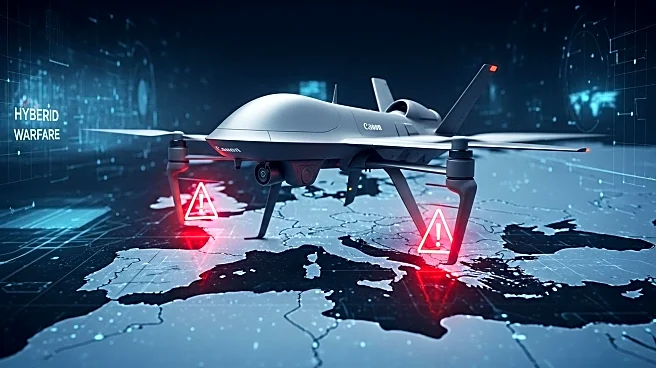What is the story about?
What's Happening?
Polish Prime Minister Donald Tusk has issued a stark warning to NATO allies regarding Russia's ongoing provocations in the Baltic region. Tusk emphasized the seriousness of the situation, describing it as a 'new type of war' that involves complex and frequent incidents. Recently, Poland shot down Russian drones that violated its airspace, highlighting the escalating tensions. Tusk reported multiple incidents involving Russian ships near Polish infrastructure, including the Petrobaltic platform and pipelines. He stressed that these provocations occur almost daily, urging NATO to recognize the gravity of the threat and support Ukraine, as its defeat would signify a broader regional loss.
Why It's Important?
The warning from Prime Minister Tusk underscores the increasing geopolitical tensions in Eastern Europe, with potential implications for NATO's security strategies. The frequent incidents in the Baltic Sea could lead to heightened military readiness and increased defense spending among NATO countries. This situation also places pressure on NATO to reassess its approach to Russian aggression, potentially influencing diplomatic relations and defense policies. The ongoing conflict in Ukraine remains a critical focal point, as its outcome could significantly impact regional stability and NATO's strategic interests.
What's Next?
NATO may need to consider bolstering its presence in Eastern Europe and enhancing its surveillance capabilities to counteract Russian provocations. Diplomatic efforts to de-escalate tensions could be pursued, although the complexity of the situation may require a multifaceted approach involving both military and diplomatic strategies. The alliance's response will likely be closely monitored by global stakeholders, including the European Union and the United States, as they navigate the delicate balance between deterrence and diplomacy.















